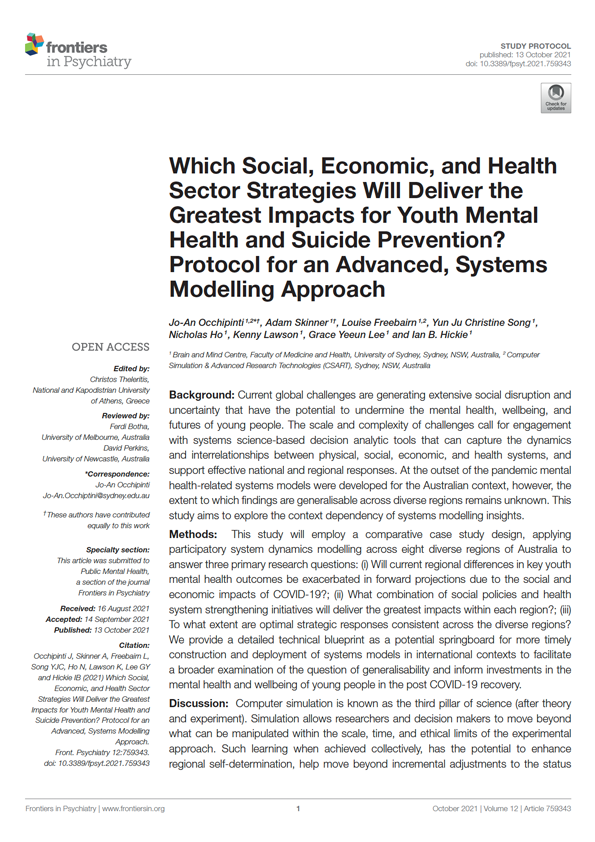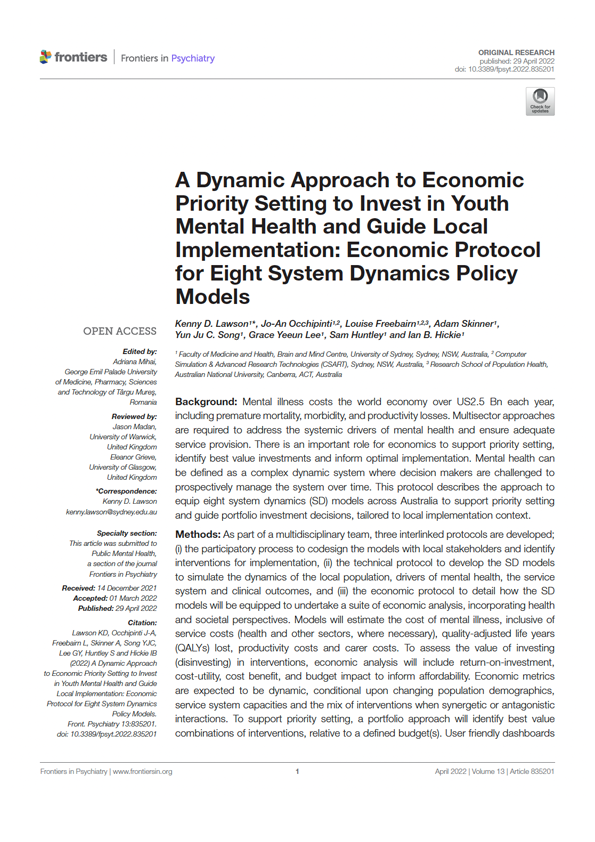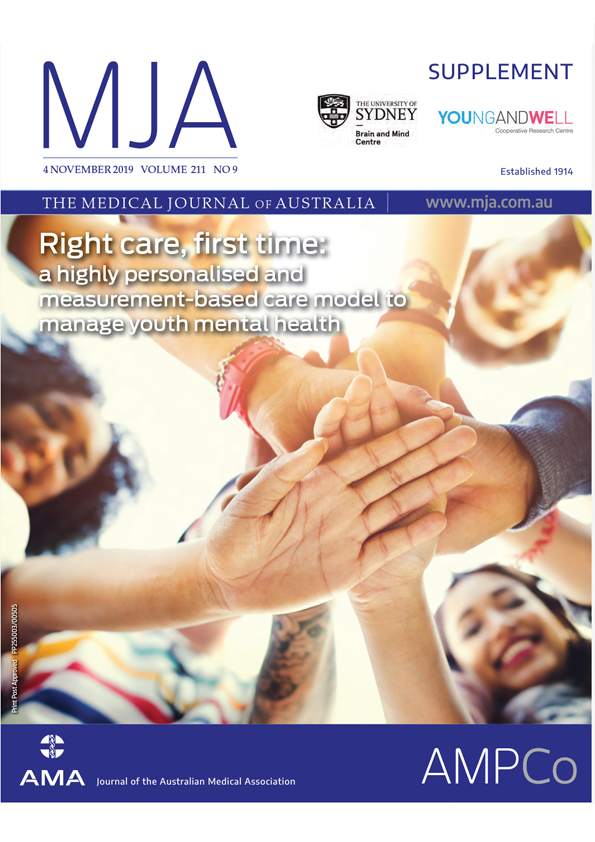Right care, first time, where you live
Right care, first time, where you live’ is a national program where we co-develop with communities, decision-support tools using systems modelling and simulation to guide investments in sustained, coordinated and digitally enhanced youth mental health care. These enhanced care systems will be delivered regionally and in ways that are co-designed and governed by local communities and their relevant health agencies. This decision-support ecosystem will navigate a challenging decision-making environment and strengthen and coordinate the delivery of mental health in a responsive and dynamic way.
This research program aims to bring an evidence-based discipline to investments in Australia’s youth mental health systems that will provide young people with timely access to the right level of care, delivered early in the course of illness, and for a sufficiently long-period, to ensure that they thrive economically and socially. Specifically, this means that more young people get back on a positive developmental trajectory towards enhanced social, educational and vocational functioning – back to school, back to work and thriving in their communities.



